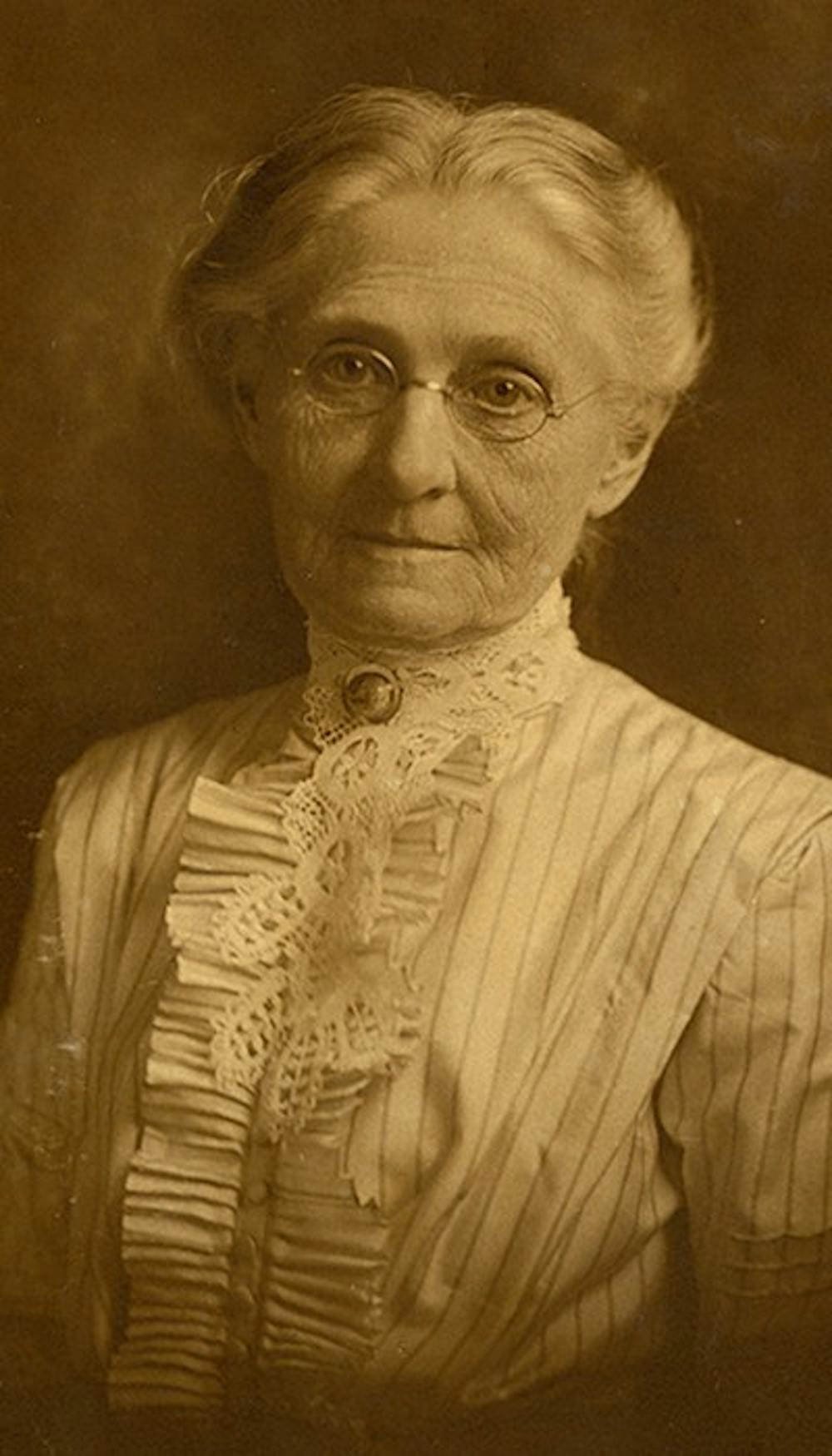This spring, many women of Otterbein will walk across the stage and receive their diplomas. However, a century and a half ago, the number would be significantly reduced.
As National Women’s History Month comes to an end, the Tan & Cardinal looks back at one of the university’s first female graduates, born Mary Katherine Winter but died Kate Hanby. Through the Otterbein archives and archivist Stephen Grinch, Kate’s story unfolds.
Kate Hanby
Winter preferred the name Kate instead of Mary due to an excessive amount of teasing from a man named Ben Hanby when she was in college. Hanby, who would also write “Up on the Housetop,” sang outside Kate’s window one night. However, in lieu of singing “Mary had a little lamb,” he made a modification to the song, transforming it into “Mary was a dancing man.” During this time, dancing still had negative connotations to one’s reputation, and since Hanby’s rendition of the nursery rhyme became associated with her name, she decided to be called Kate from then on.
Kate was born Mary Katherine Winter on June 12, 1835 in Pennsylvania. Her family relocated to Enta, Ohio, and then again to Westerville where her family lived on the corner of West and Home streets in a brick house.
Although information on why she went to college is limited, it’s believed that she enrolled because the college was close to her home, men and women could both attend the school and it was the first to hire women as faculty members. Also, additional schooling was needed if women sought to become teachers.
In college, Kate interacted with Ben more than just outside her dorm window. The two began a romantic relationship while they were at Otterbein, even though Kate’s parents didn’t approve of Ben. Professor Ralph Walker would invite the couple over to dinner at his house, located near where the painted rock is now, and after their meal, the couple would court.
Of course, Kate focused on school as well. During this time, a college education didn’t have majors but it was considered a classical education. Students studied topics in Greek and Bible literature, math and science.
Finally, in 1857, Kate became one of the first two women to graduate from Otterbein College in its first graduating class. Her cousin, Sarah Jennie Miller, was the other. A year later, Ben graduated and the couple married two days later.
Kate became the “typical 19th-century wife” according to Grinch. She had two children, a son, Brainerd, who went on to be become a news publisher, and daughter, Minnehaha.
In 1867, Ben died of tuberculosis, leaving Kate in an unfortunate position, according to Grinch. Women widowed at her age were expected to remarry to sustain a living for the family, but because she loved Ben so much, she refused and never married again.
However, Kate threw herself into her work for the next couple decades.
She was a teacher, a migrant farmer and head of the Ladies Department at Otterbein, which is equivalent to today’s position of the Dean of Students.
Kate’s last visit to Otterbein was her 50th reunion in 1907. At the time, she was the only living member of her graduating class.
“She would occasionally come back to visit the university and when she did, it was as if the queen mother herself had arrived,” Grinch said. “She was treated like royalty.”
Kate lived out the rest of her years with her daughter in California. On Oct. 19, 1930, at the age of 95, she passed away.
Kate’s Impact Today
More than 80 years after her death, Kate’s impact on Otterbein’s community is still present.
“When you consider how she lived her life and what she did to make ends meet, I would say there’s a great legacy of self-determination, hard work and not conforming to what is expected,” Grinch said.
In honor of Kate, Otterbein named its feminist zine after her. The publication, “Kate,” accepts work from any “Otterbein folk,” according to Jacqlyn Schott, the zine’s editor.
By using Kate’s name for the feminist publication, Schott said the zine was able to honor Kate’s achievement as one of the first women to graduate. The name would carry on Otterbein’s pro-woman legacy as well.
“Otterbein did not exclude women and those different from the ‘norm,’ and ‘Kate’ believes that we should do the same,” Schott said.








